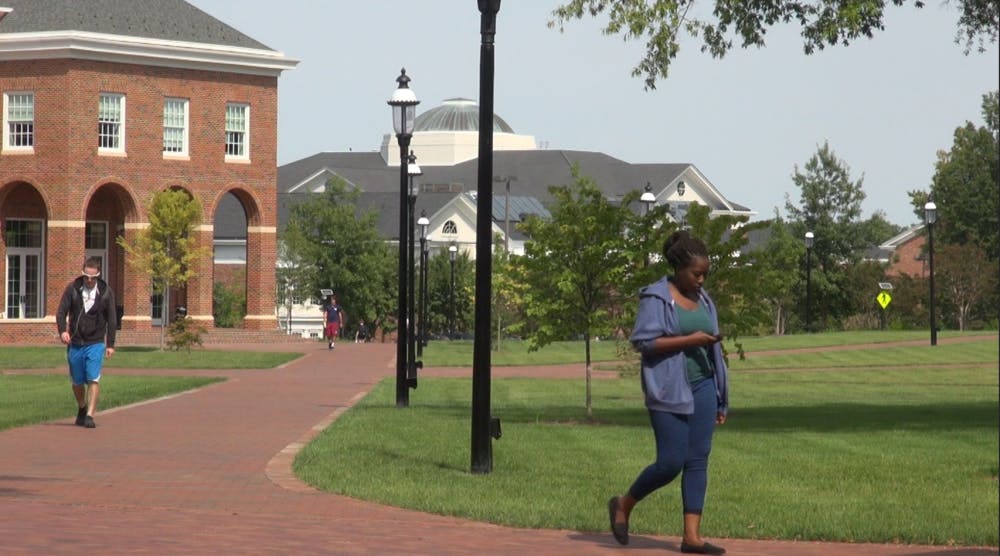For years there has been a lot of conversation, both privately and publicly, about the divide of race and experiences on Elon's campus.
Now, because of the results from the Presidential Task Force on Black Student, Faculty and Staff Experiences, the campus has solid data to back the claims that for a significant portion of Elon's Black students, faculty and staff, feels that Elon can be a drastically different place than their non-Black peers and colleagues.
[youtube=https://www.youtube.com/watch?v=sY0oZeNGDHM&noredirect=1&w=560&h=315]
The task force is made up of alumni, students, faculty and staff and its goal is to implement policies and practices to make Elon more supportive and inclusive of the black community.
Results gave insight and recommendations to issues like safety, inclusivity and overall community interactions. A large part of the findings stem from a Fall 2014 survey that featured 1,165 Black and non-Black students, faculty and staff as well as focus groups and interviews with black and non-black students, faculty and staff.
The report is leaving the campus community with mixed reactions.
"I wasn't surprised at all. The information in the report is something I have seen and experienced first hand and heard from other students in very informal way," senior and President of Elon's Black Student Union Alex Bohannon said.
Elon's chapter of the Black Student Union provides advocacy, support and community for black students on campus.
Bohannon said that since arriving at Elon he has personally witnessed the ups and downs of being black at a predominantly white institution.
"If I were to say 'Oh my like what do you mean you can't dance? but you're black!' That happens all the time," he said. "I don't remember a day where I have not experienced a microaggression or some type of things like that."
According to the presidential task force report those microaggressions are part of a bigger problem. Nearly 80 percent of black students do not feel "safe and secure" on campus.
Student Government Association President, Avery Steadman, said this particular statistic was an eye opener.
"Personally I don't feel unsafe, but that was shocking that such a large percentage of black students feel unsafe which seems just an easy thing--something that's so necessary to feel safe on campus," Steadman said.
Another component of the report is feedback from faculty and staff.
Among the 64 black faculty and staff respondents, 20 reported having disparaging comments regarding race or ethnicity directed at them personally.
This stood out to Steadman.
"I think that was the most shocking to me because students are younger and more vulnerable but then if a staff member is feeling this way and with students in their class, I mean that's their daily life, " she said. "That's their job. That's everything. That's not okay."
Dean of Multicultural Affairs and co-chair of the task force, Dr. Randy Williams, was less shocked by the results.
"The experiences, they weren't surprising, sobering at times for sure, but not surprising," he said. "Again, Elon is a part of the larger society. Racism is systemic. It's been around for a long time and it's a powerful force that can infiltrate any type of institutions, including Elon, but what the difference here is the university responding in a way that could quite possibly make a significant change."
Yet for all the seemingly disparaging information, Williams is optimistic about the findings.
"So that's the real headliner here is the university has taken the steps to acknowledge some of its shortcomings and wanting to be very clear and transparent about what our issues are and wanting to take steps with a strong set of recommendations."
Elon's President, Dr. Leo Lambert, released this statement to ELN about the task force and the report findings:
"The excellent report of the Presidential Task Force on Black, Student, Faculty and Staff Experiences challenges us to create a more inclusive and welcoming Elon, and also details the progress our community has made. Each of us has a personal responsibility to work for positive change in campus culture, creating an environment in which all Black students, faculty, staff and alumni can thrive. Importantly, this report provides a roadmap of specific goals and action steps, and we have already begun work on these recommendations. This fall we are forming an implementation group to manage the substantive tasks ahead. This work deserves nothing less than our full focus and commitment."
Dr. Lambert, Bohannan, Steadman and Dr. Williams are all determined that the recommendations made in the report to increase awareness and education about race on Elon's campus can and will happen.
For Bohannon and his friends, they have already seen change in action.
"When we came in as first year students we were like, 'Uh we were excited to be here,' then we were all of a sudden like, 'Wait, what? Uh, somebody got called what?' You know just understanding and a lot of us were maybe we were thinking about coming here," Bohannon said. "But now, it's a great decision. We love Elon. We appreciate all that Elon has done for us. We know that Elon has its challenges, but what institution doesn't have its challenges?"
Recommendations include greater implementation in the curriculum and classroom to better engage students about race. Also there is also a recommendation to increase admission for minority students. Also there is a call to have a specific section of the financial planning office to be for underrepresented students.
Steadman told ELN that the SGA is currently in the works of planning a "Privilege Walk" in response to the respect rally that happened in Spring 2015.


